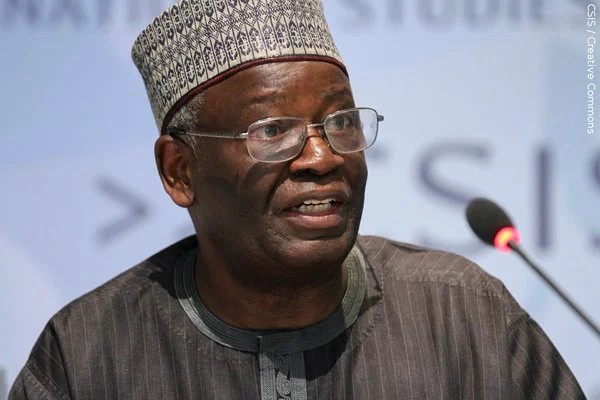Former Chief of Staff to ex-President Muhammadu Buhari, Prof. Ibrahim Gambari, has revealed how powerful elements within the Presidency circumvented protocol to influence the former Nigerian leader by smuggling memos directly to him.
Speaking on Channels Television’s Inside Sources on Friday, Gambari disclosed that despite Buhari’s directive that all official correspondences must pass through his office, some individuals in the “cabal” managed to exploit the president’s weaknesses to gain informal access.
“They knew his weak moments, they knew when to smuggle [memos] because they understood him and interacted with him informally,” Gambari stated.
Gambari, who served from May 2020 until the end of Buhari’s administration in May 2023, was appointed following the death of his predecessor, Abba Kyari.
Despite the President’s clear instruction, Gambari admitted that even top officials found ways to bypass official channels.
“Even the Vice President, to his credit, passed memos through me. Some ministers did too. But there were people who still got theirs to him directly because they knew who to use—and he never stopped them. Fortunately, most of those memos still came back to me,” he said.
Reflecting on his time in office, Gambari described Buhari, who passed away on July 13, 2025, as a compassionate leader who deeply cared for his aides and citizens.
He said this affection sometimes made the former president reluctant to sack underperforming cabinet members, even under public pressure.
On the influence of a so-called “cabal” in the Buhari administration, Gambari confirmed its existence but clarified that every government has such a group, even if it goes by different names.
“Call it a kitchen cabinet or a think tank, every government has one,” he noted. “Obasanjo had his group. It’s the nature of the presidency—leaders need people they can open up to. Some wield more power than others, but that influence is always there.”
Gambari also recounted that even during Buhari’s military regime in the 1980s, similar patterns of influence contributed to internal dissatisfaction within the Supreme Military Council, eventually leading to his ouster in 1985.
Born on December 17, 1942, Muhammadu Buhari first led Nigeria as a military ruler from January 1984 to August 1985.
He later returned as a democratically elected president in 2015 and served two terms before handing over to his successor, Bola Tinubu, in 2023.
Do you want to share a story with us? Do you want to advertise with us? Do you need publicity for a product, service, or event? Contact us on WhatsApp +2348183319097 Email: platformtimes@gmail.com
We are committed to impactful investigative journalism for human interest and social justice. Your donation will help us tell more stories. Kindly donate any amount HERE




